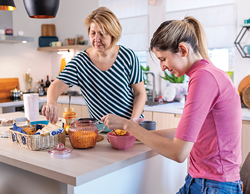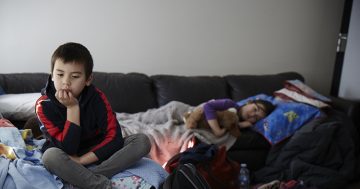 The Australian Institute of Family Studies (AIFS) is calling on Government policy-makers to consider the needs of 20-somethings who moved back home during the recent COVID pandemic.
The Australian Institute of Family Studies (AIFS) is calling on Government policy-makers to consider the needs of 20-somethings who moved back home during the recent COVID pandemic.
Program Lead for the Longitudinal Study of Australian Children at AIFS, Lisa Mundy said AIFS’s Young adults returning to live with parents during COVID-19 report revealed the extent of social isolation and loneliness experienced by those in their early twenties during the national lockdown.
“With one in four young Australians moving home during this period, the landmark report also highlights the possible long-term health, social and economic implications of such severe disruptions,” Dr Mundy said.
“The difference of experience between young women and men is also shown in the research, with young women consistently reporting higher levels of loneliness and social isolation and difficulty with their studies than young men,” she said.
“A total of 44 per cent of women reported that they had ‘often’ or ‘always’ felt isolated from others, compared to 27 per cent of men.”
Dr Mundy said that although society was moving on from the pandemic, it was important that policy and decision makers didn’t ignore a key group of the population in the years to come, “who may still be experiencing difficulties as a result”.
She said the early 20s age group was a vulnerable and often overlooked cohort in the social research space, yet it was a critical age for formative development and sociological transition points.
“We must monitor the long-term implications of lockdowns on these young adults, including the impact on future employment and family dynamics, so that they can be appropriately supported as they move into the next phase of their adult lives,” she said.
Director of AIFS, Sharman Stone described the findings on the gendered experiences of young Australians returning home during the pandemic as significant.
“The more negative experiences of young women is particularly concerning, as many may live for longer periods at home as housing becomes less affordable,” Dr Stone said.
“The Report provides important insight into assessing how we can better support families as they navigate changes in living arrangements; particularly as data continue to suggest that young adults are staying at home for longer for a myriad of reasons, including increasing cost of living pressures,” she said.
AIFS’s 11-page Report can be accessed at this PS News link.











